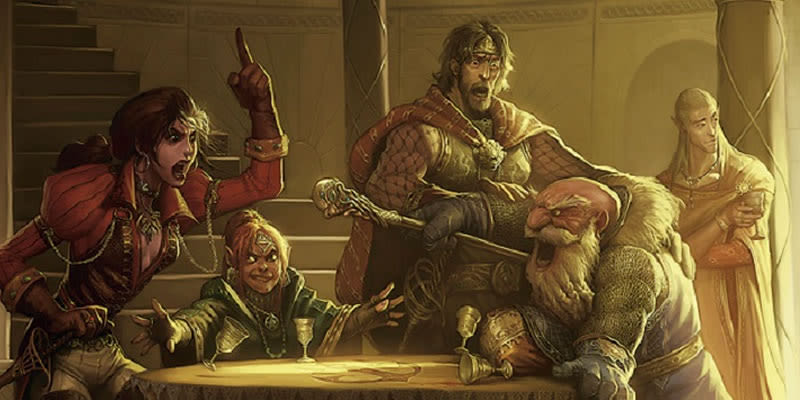
Alignment
With TDN's reimagining of the system, alignment is not a static label but a reflection of significant choices and actions a character has made over time. This approach allows characters to evolve in a more organic and realistic manner, mirroring the complexities of real-world ethics and morality. Rather than meticulously tracking every minor deed, our system focuses on how substantial decisions impact a character's ethical and moral standing.
This system allows players to truly shape their characters through gameplay and decisions, reflecting a more realistic and dynamic evolution of morality and personal ethos.
Significance of Actions:
- Minor Actions: Day-to-day choices and minor deeds serve to paint a detailed picture of a character’s personality and ethical leanings. These actions help define a character's general disposition but do not typically cause alignment shifts. They offer depth and granularity in portraying a character's moral landscape without directly affecting their core alignment.
- Significant Actions: Major decisions that have profound consequences or stem from critical moments in the narrative can lead to subtle shifts in alignment. These actions reflect pivotal points in character development, such as major betrayals, sacrifices, or decisions that align with or against a character's established moral or ethical framework.
- Extreme Actions: Only the most dramatic and defining moments—those that fundamentally challenge or affirm a character's principles—lead to major shifts in alignment. Such shifts are rare and reserved for events that are truly transformative, such as a heroic sacrifice or a descent into malevolence.
Core Concepts of Alignment:
- Law vs. Chaos: This axis reflects a character's approach to order and structure. Lawful characters consistently respect rules and consistency, while chaotic characters consistently, and conversely, prioritize freedom and flexibility. Characters who balance these aspects or commonly choose based on circumstance and convenience are considered neutral on this axis.
- Good vs. Evil: This axis deals with moral judgment. Good characters consistently lean towards selflessness and concern for others, whereas evil characters often prioritize self-interest, particularly at the expense of others. Those who commonly operate between these poles, acting out of pragmatism or phlegmatism, are considered neutral on this axis.
Lawful actions include:
- Adhere strictly to codes, rules, or traditions. These can be personal or communal.
- Uphold structured systems, whether societal, legal, or organizational.
- Honor commitments and promises.
Chaotic actions include:
- Defy rules and conventions, prioritizing personal freedom.
- Act impulsively or based on personal desires, regardless of societal expectations.
- Resist authority and seek to undermine established order.
Good actions include:
- Help, protect, or benefit others. While often not entirely selfless, these actions can frequently be of some detriment to oneself.
- Show compassion and work towards the welfare of others.
- Make personal sacrifices for the greater good or to aid others.
Evil actions include:
- Kill, harm, exploit, or hinder others under most circumstances, but particularly for personal gain.
- Show disregard or active malice towards the well-being of others.
- Pursue power or self-interest at the expense of others.
So what does a character's alignment actually mean in TDN, then?
A character's written alignment is a commentary on the nature of a character's history, as well as their general moral and ethical leanings. It is a definition that is influenced by the types of actions, particularly those that are extreme or character-defining, they have performed over the course of their lifetime, rather than the actions they are expected to always perform in the future.Being of a certain alignment does not, by any means, require all of a character's actions to adhere to that alignment strictly. Although it is likely that the majority of their actions will fall within their alignment axes, it is outlandish and unrealistic for a typical character to be a perfect paragon of their alignment. It is important to remember that characters are people, and people have a vast range of emotional and moral depth - far too extensive to be entirely summed up by a pair of preconception-laced words.
In TDN, it is strongly encouraged for players to create and roleplay a character, not an alignment.

